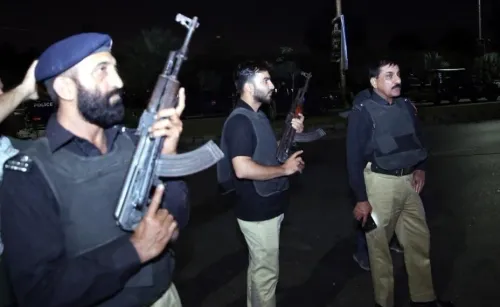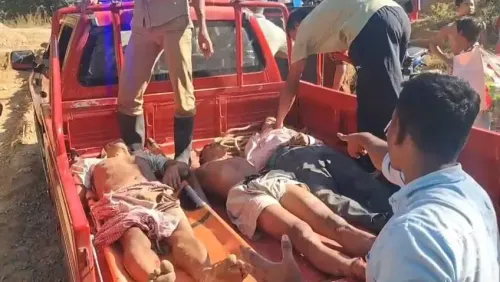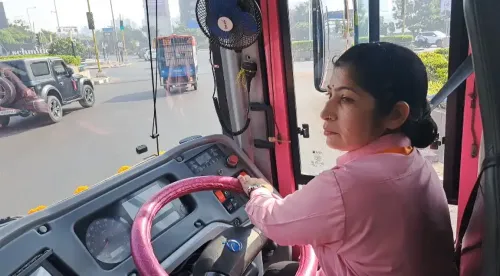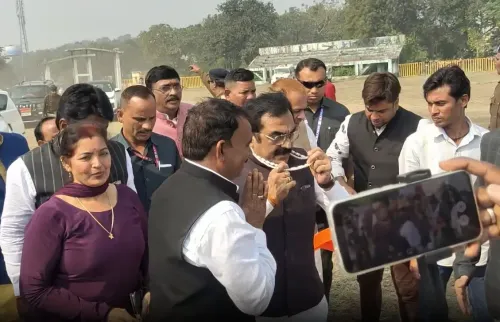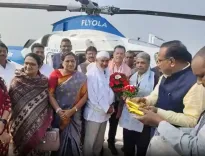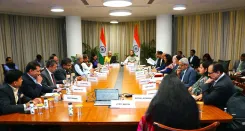How did South Korean President Lee and Egyptian counterpart El-Sisi agree to enhance regional peace cooperation?

Synopsis
Key Takeaways
- Commitment to Peace: Both leaders aim to act as facilitators of peace.
- Defense Collaboration: Expansion beyond K9 howitzers into aircraft and ground systems.
- CEPA Negotiations: Aiming for a robust economic partnership framework.
- Cultural Exchange: Growing interest in Korean culture in Egypt.
- Humanitarian Support: Ongoing cooperation to address Gaza's humanitarian crisis.
Cairo, Nov 20 (NationPress) In a significant meeting on Thursday, South Korean President Lee Jae Myung engaged in summit discussions with his Egyptian counterpart, Abdel Fattah El-Sisi, committing to enhance collaboration for fostering peace in both the Korean Peninsula and the Middle East, alongside bolstering economic and defense industry partnerships.
This summit, held in Cairo, marked the first official visit by a South Korean president to Egypt in three years.
During a joint press briefing at the presidential palace in Cairo, Lee stated, "The Republic of Korea and Egypt have agreed to act as 'facilitators of peace' and cooperate to advance international peace efforts in regions like the Korean Peninsula and the Middle East," as reported by Yonhap News Agency.
Lee noted El-Sisi's commendation of Seoul's initiatives aimed at heralding a new era characterized by peaceful coexistence and mutual growth on the Korean Peninsula, expressing full backing for these efforts.
In response, Lee acknowledged Egypt's role in achieving a ceasefire and promoting reconstruction in the Gaza Strip, along with its significant contributions to Middle Eastern peace. He reaffirmed South Korea's commitment to collaborating with Egypt to tackle the humanitarian crisis affecting Gaza refugees.
The summit also focused on expanding defense cooperation beyond the existing joint production of K9 howitzers to include aircraft and ground weapon systems.
In 2022, Egypt entered into a USD 1.7 billion agreement with the Korean defense enterprise Hanwha Aerospace to procure K9 self-propelled howitzers and related equipment, with deliveries expected next year.
"I expressed my aspiration for our bilateral defense collaboration to broaden, encompassing systems like the FA-50 advanced trainers and the Cheongeom anti-tank missiles," he said.
El-Sisi, in turn, expressed confidence in the defense technologies of Korea and interest in the joint production of weapon systems.
Furthermore, during the summit, South Korea and Egypt formalized a joint declaration aimed at advancing negotiations for a Comprehensive Economic Partnership Agreement (CEPA), designed to establish a structural framework for enhancing economic relations.
Lee remarked, "The CEPA will act as a crucial institutional foundation for extensive economic collaboration. We hope to commence CEPA negotiations promptly between our nations."
The two countries also signed memorandums of understanding focusing on educational and cultural exchanges, aiming to enhance people-to-people connections, coinciding with the growing popularity of Korean culture in Egypt.
"Egypt stands as a cultural leader in the Middle East and is deeply interested in Korean content, encompassing drama, K-pop, cuisine, and the Korean language," Lee added.
After the summit, Lee is expected to deliver a speech at Cairo University, outlining his vision for deeper engagement with the Middle East.
Later on, he is scheduled to meet with the Korean community residing in Egypt.

